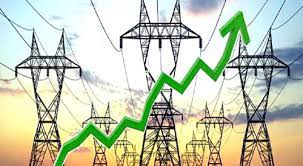LAHORE – The federal government has increased the base tariff of electricity by Rs4.96 per unit for consumers of all distribution companies and K-Electric.
The decision taken in line with the recommendations of the International Monetary Fund (IMF) will be applicable from July 1, 2023.
After the recent increase, the base tariff will be Rs29.78 per unit.
The reasons for the hefty increase in base tariff are a surge in RLNG price, imported coal, local coal, gas, furnace oil, currency devaluation, inflation and high-interest rate.
The government has also decided upward revision the duration of electricity’s peak hours.
Instead of 6pm-10pm, the peak time has been changed to 5pm-11pm.
Now the question is that how increase in base tariff and peak hours will affect the inflation hit masses.
As per media reports, the impact on consumers will be huge due to heavy taxes and additional charges.
The consumers using 100 units per month will see a rise in their base tariff from Rs13.4 per unit to Rs18.36 per unit, with their bill increasing to Rs1,836, without including taxes and additional charges.
The monthly bill of those using 200 power units will go up from Rs3,700 to Rs4,700 as their base tariff will rise to 23.91 per unit.
Those consuming 300 units of electricity in a month will see their bills between Rs6,000 to Rs8,000, while the bills of those using 400 power units will go up to Rs12,300.
For those using 500 power units, their bills will be between Rs13,000-Rs16,000. Remember, these are without taxes and as such monthly electricity bill will be much more than these estimates.










